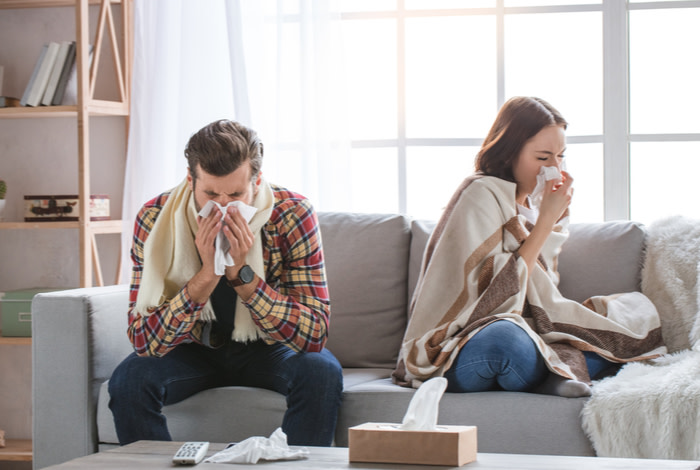
Most people who contract COVID-19 will only have mild symptoms including fever, a cough, sore throat and fatigue and should recover from the illness quickly from home, but you can’t afford to be complacent when it comes to care. COVID-19 is highly contagious and can be very dangerous. The CDC (Centers for Disease Control and Prevention) and WHO (World Health Organisation) recommend a number of protocols for the home care of someone with a mild case of COVID-19.
Monitor symptoms
While most people have only mild COVID-19 symptoms and recover quickly, it is important that anyone caring for someone with the virus pays close attention to any worsening symptoms. If symptoms worsen, contact a GP or Coronavirus clinic and they will be able to advise you on extra steps you should take in their care or if they need to come into a clinic for care. Always have the contact details for your GP or local clinic on hand so you can get in contact quickly if any problems arise.
If they develop any of the emergency warning signs associated with severe COVID-19 then medical attention should immediately be sought. Emergency warning signs include:
- Trouble breathing
- Blue tinge to face or lips
- Persistent tightness, pressure or pain in chest
- Confusion or the inability to rouse
Book your appointment with your nearest COVID-19 clinic here.
Minimise the risk of infection
While it’s essentially impossible to implement social distancing protocols when you’re caring for a sick person, there are still a number of things you can do to minimise the risk of transmitting the virus to other members of the household.
- If possible the patient should be housed in a separate, well ventilated room. Having the patient use a separate bathroom to other household measures can also greatly help lessen the risk of exposure.
- Although patients don’t need to be totally bedridden limiting their movements within the house limits possible infection. Make sure that any shared space is well ventilated.
- Members of the household should endeavour to remain at least 1m distant from the infected at all times, with only a single carer making closer contact. This carer should be a person with no underlying chronic conditions or immune disorders.
- Hand hygiene should be performed after each interaction with the infected person or their immediate environment as well as before and after preparing food, before eating after using the toilet or whenever they are dirty. Soap and water should be used for visibly dirty hands and alcohol based hand sanitiser can be used at other times. Use paper towels to dry hands after washing with soap and water if possible. If they are not available, use cloth towels and replace them often.
- The patient should wear a medical mask that covers their nose and mouth to contain any aerosolised particulate expelled by coughing and sneezing. These masks should be replaced daily and disposed of immediately. Caregivers should also wear a mask that covers the nose and mouth when they are in the same room as the patient.
- Avoid direct contact with any bodily secretions. Wear single use disposable gloves and a mask any time you provide oral or respiratory care or when handling any waste. Proper hand hygiene should be performed before and after removing gloves.
- The patient should have dedicated eating utensils and linen. These may be cleaned and reused, but should only be used by the patient.
- Clean and disinfect frequently touched surfaces in the patient's room on a daily basis. Regular soap or household detergent is fine for cleaning. Household disinfectants containing 0.1% sodium hypochlorite are satisfactory for disinfection after cleaning. Bathrooms should be cleaned and disinfected in a similar manner daily.
- Keep the patient’s dirty linen, clothes and towels in a separate laundry bag from those of other household members and avoid skin contact with infected material. Wash separately with regular detergent at a temperature over 60°C and dry thoroughly.
- Avoid sharing potentially contaminated items, i.e. toothpaste, cigarettes, eating utensils, sheets, clothes, dishes or drinks.
Treat symptoms
There is no vaccine or official drug regimen for COVID-19 as yet, but some over the counter medications can be used to alleviate symptoms. There is some anecdotal evidence that ibuprofen use may exacerbate COVID-19 symptoms, but paracetamol has proven to be both safe and more effective at controlling some symptoms.
More than anything else, ensure that the patient gets plenty of fluid and rest.